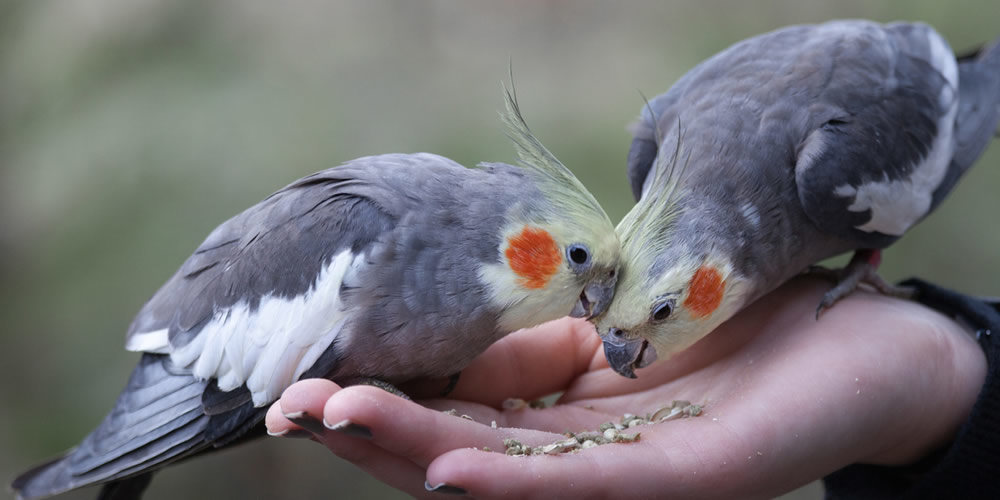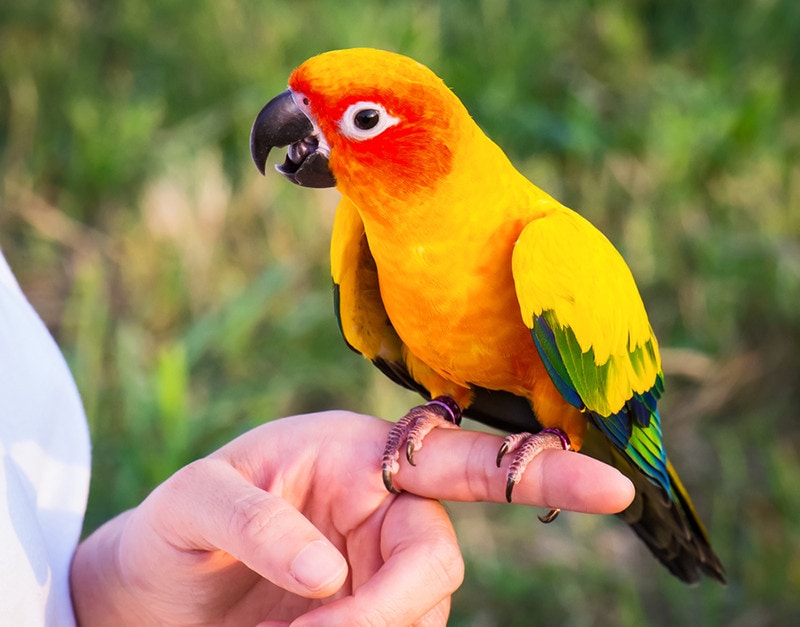Quick search
CTRL+K
Quick search
CTRL+K
Billy Morgan
Birds are among the most beloved pets, known for their beauty, intelligence, and the joy they bring to their owners. However, keeping a bird as a pet comes with significant responsibilities. One of the most critical decisions bird owners must make is whether to keep their bird indoors or allow them some freedom outside. While the idea of letting your bird enjoy the outdoors might seem appealing, the risks far outweigh the benefits. This blog post will delve into the importance of keeping your bird indoors, covering aspects such as safety, health, bonding, and overall well-being.
One of the most compelling reasons to keep your bird indoors is to protect them from predators. Birds are natural prey for many animals, including cats, dogs, hawks, and other larger birds. Even in an urban environment, the threat of predators is significant. A bird outdoors is vulnerable, and a predator can strike with little warning, leading to injury or death.
In addition to predators, birds face other dangers when outdoors. They might fly into traffic, get caught in tree branches, or even become entangled in electrical wires. These dangers are ever-present and pose a significant risk to your bird’s life.

Birds are naturally curious and have a strong instinct to explore their surroundings. If allowed outdoors, even for a short time, there is a real possibility that your bird might fly away. Once a bird escapes, finding and retrieving them can be incredibly challenging. Birds may not have the survival skills necessary to navigate the outdoors, especially if they have been raised in captivity. The outdoors can be overwhelming for a bird that is not accustomed to it, leading to disorientation, fear, and eventually, death.
Keeping your bird indoors eliminates the risk of accidental escape, ensuring that your pet remains safe and secure within the confines of your home.
The outdoors can be a harsh environment for a pet bird, especially one that is not used to it. Extreme weather conditions, such as heatwaves, freezing temperatures, heavy rain, and strong winds, can be harmful to your bird. Birds are sensitive creatures, and sudden changes in weather can lead to stress, illness, or even death.
Indoors, you have control over the environment. You can regulate the temperature, provide a consistent and comfortable atmosphere, and ensure that your bird is not exposed to the elements. This controlled environment is crucial for the health and well-being of your pet bird.
Wild birds and insects can carry a variety of diseases that can be transmitted to your pet bird if they are exposed to the outdoors. Some of these diseases include avian flu, psittacosis, and West Nile virus. These diseases can be deadly for pet birds, and treatment can be difficult and costly.
By keeping your bird indoors, you significantly reduce their exposure to these potential health threats. Indoors, you can monitor your bird’s health more closely and ensure that they are not exposed to other sick birds or insects that might carry harmful pathogens.
The outdoors is full of potential hazards, including toxic plants and chemicals. Many common garden plants, such as oleander, foxglove, and azalea, are poisonous to birds if ingested. In addition, birds might be exposed to pesticides, fertilizers, and other chemicals that can be harmful or even fatal.
When you keep your bird indoors, you have complete control over their environment. You can ensure that your bird is not exposed to any toxic substances, whether in the form of plants, chemicals, or other materials. This level of control is essential for maintaining the health and safety of your bird.
Keeping your bird indoors provides more opportunities for interaction and bonding. Birds are highly social animals and thrive on interaction with their human companions. When kept indoors, you can spend more time with your bird, engaging in activities such as talking, playing, and training. This interaction is essential for the mental and emotional well-being of your bird.
A bird that feels loved and secure is more likely to be happy and healthy. By keeping your bird indoors, you can build a strong bond with them, leading to a more fulfilling relationship for both you and your pet.
The outdoor environment can be stressful and overwhelming for a pet bird. Loud noises, unfamiliar sights, and the constant threat of predators can cause significant anxiety for your bird. This stress can lead to a variety of health problems, including feather plucking, decreased appetite, and weakened immune function.
Indoors, you can create a calm and peaceful environment for your bird. You can minimize exposure to loud noises, provide a stable and predictable routine, and ensure that your bird feels safe and secure. This reduced stress level is essential for maintaining your bird’s overall health and well-being.
When your bird is kept indoors, you have a better opportunity to monitor their health and behavior closely. Birds are known for hiding symptoms of illness, and early detection is crucial for effective treatment. By keeping your bird indoors, you can observe their eating habits, droppings, and overall behavior more closely, allowing you to catch any potential health issues early.
Indoor environments also allow for easier access to veterinary care. If your bird becomes ill or injured, you can quickly transport them to a vet without the added stress of capturing them from the outdoors.
Birds need regular exercise to stay healthy, but the outdoors is not always a safe place for this. Indoors, you can create a safe and controlled space for your bird to fly, climb, and explore. You can provide toys, perches, and other forms of enrichment that allow your bird to engage in natural behaviors without the risks associated with outdoor play.
Indoor play also allows you to supervise your bird more closely, ensuring that they do not engage in any dangerous activities or come into contact with harmful objects.

While the outdoors might seem like the ideal place for a bird to engage in natural behaviors, the risks often outweigh the benefits. Indoors, you can still encourage these behaviors in a controlled environment. Providing a variety of toys, perches, and foraging opportunities can help stimulate your bird’s mind and body, keeping them active and engaged.
You can also create a bird-safe room or area in your home where your bird can explore freely without the dangers of the outside world. This controlled environment allows your bird to engage in natural behaviors such as climbing, chewing, and flying, all while remaining safe.
To ensure your bird remains happy and healthy indoors, it’s essential to provide ample enrichment. Enrichment involves providing activities and objects that stimulate your bird’s mind and body. This can include a variety of toys, puzzles, and interactive games that keep your bird engaged and prevent boredom.
You can also rotate toys and rearrange perches regularly to keep the environment fresh and exciting for your bird. Offering a variety of foods and treats can also add to the enrichment, encouraging natural foraging behaviors.
Some bird owners may have concerns about keeping their bird indoors, such as the lack of fresh air and natural sunlight. However, these concerns can be addressed with proper care and planning. For example, placing your bird’s cage near a window can provide natural light, and allowing your bird some supervised time outside in a secure aviary or on a harness can give them fresh air without the risks associated with full outdoor exposure.
Air quality indoors can also be managed with proper ventilation and the use of air purifiers. Regular cleaning of the bird’s cage and living area can help maintain a healthy indoor environment.
Birds thrive on routine and stability, both of which are easier to maintain indoors. Having a consistent daily routine for feeding, playtime, and rest can help your bird feel secure and reduce stress. Indoors, you can control the environment to ensure that your bird has a predictable and stable routine, which is essential for their mental and emotional well-being.
Keeping your bird indoors can contribute to a longer and healthier life. Indoor birds are less exposed to the dangers and stresses of the outside world, leading to a lower risk of injury, illness, and premature death. By providing a safe, stable, and enriched indoor environment, you can ensure that your bird lives a long and fulfilling life.
Read Also : The Ultimate Guide to Feeding Different Types of Pets
While it might seem appealing to let your bird enjoy the outdoors, the risks associated with outdoor exposure far outweigh the benefits. Keeping your bird indoors is the best decision you can make to ensure their safety, health, and overall well-being. By providing a controlled and enriched indoor environment, you can protect your bird from predators, environmental hazards, diseases, and other dangers. Moreover, keeping your bird indoors allows for more bonding time, reduced stress, and better monitoring of their health.
In the end, your bird’s happiness and longevity depend on the care and environment you provide. By choosing to keep your bird indoors, you are making a responsible and loving decision that will benefit both you and your feathered companion for years to come.
© All rights reserved. Made in Canada